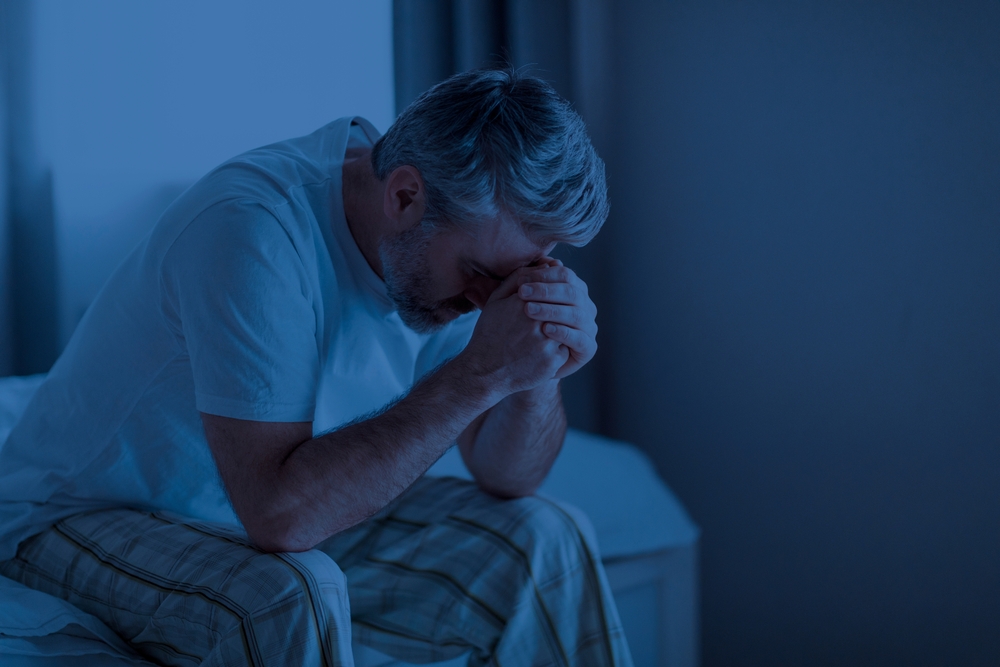We understand how worrying it can be to see an elderly loved one struggle with persistent sadness. While it is natural to experience grief and loss with age, it is important to recognize when these feelings deepen into something more serious. Elderly depression is a treatable medical condition, not a normal part of aging. Our commitment is to provide you with clear, professional, and compassionate information to help you identify the signs of depression in seniors. We want to empower you with the knowledge to take supportive action, ensuring your loved one receives the care and understanding they deserve. Reach out today to learn more about how we can help you enhance your golden years.
The Challenge of Recognizing Depression in Older Adults
Sadness is a universal human emotion, often tied to life changes and loss. For seniors, these changes can be frequent, involving loss of independence, health challenges, or the passing of dear ones. However, when sadness becomes a constant presence that interferes with daily life, it may signal depression. We want to explain that elderly depression often presents differently than it does in younger people, which can make it difficult to recognize.
Symptoms in older adults may be dismissed as a normal reaction to aging or being masked by other medical conditions. A person might not express feelings of sadness but may instead complain about physical ailments or a lack of energy. It is crucial for family members and caregivers to be aware of these subtle signs. The good news is that with proper diagnosis and a supportive approach, depression is highly treatable.
Common Symptoms of Elderly Depression
Recognizing the signs of depression is the first step toward getting help. While everyone’s experience is different, we have compiled a list of common symptoms that may indicate depression in an older adult. If these symptoms persist for two weeks or more, it is important to consult a healthcare professional.
Emotional Changes:
- Persistent feelings of sadness, anxiety, or emptiness.
- Irritability, agitation, or restlessness.
- Feelings of worthlessness, guilt, or helplessness.
- Thoughts of death or suicide.
Behavioral Changes:
- Loss of interest in hobbies and activities that were once enjoyable.
- Social withdrawal and isolation.
- Changes in appetite, leading to unintended weight loss or gain.
- Moving or speaking more slowly than usual.
Physical and Cognitive Changes:
- Chronic fatigue or decreased energy.
- Difficulty concentrating, remembering details, or making decisions.
- Sleep disturbances, such as insomnia, waking too early, or oversleeping.
- Unexplained physical complaints like aches, pains, or digestive problems.
We want to emphasize that physical symptoms, like a weakened immune system, can also be linked to depression. A thorough medical evaluation is essential to distinguish between depression and other health issues.
Supportive Steps to Help Seniors with Depression
If you are concerned that an elderly loved one is depressed, there are several practical and compassionate steps you can take to support them. We believe a holistic approach that addresses physical, mental, and social well-being is most effective.
- Encourage a Medical Consultation
Your first action should be to schedule a checkup with a doctor. We understand that many medical conditions can mimic the symptoms of depression. A physician can perform a thorough evaluation to rule out underlying health issues, such as thyroid problems or vitamin deficiencies, and review medications that could be contributing to the symptoms. If depression is diagnosed, the doctor can recommend an appropriate treatment plan.
- Promote Physical Activity
Regular physical activity is a powerful tool for improving mental health. You do not need to start an intense regimen; even gentle exercise can make a significant difference. We encourage you to help your loved one incorporate movement into their daily routine.
- Daily walks in a park or around the neighborhood.
- Seated exercises or stretching.
- Gardening or other light physical hobbies.
- Focus on a Nutritious Diet
A healthy diet is directly linked to mood and energy levels. Many older adults may not get the nutrients they need, which can lead to physical discomfort and contribute to feelings of depression. We suggest helping by:
- Planning and preparing balanced, nutrient-rich meals.
- Keeping healthy snacks readily available.
- Sharing meals together to provide companionship and ensure they are eating well.
- Prioritize Rest and Sleep
Sleep patterns are often disrupted by depression. Both too much and too little sleep can worsen symptoms. We want to help you encourage a healthy sleep routine by promoting a regular bedtime and discouraging long naps late in the day. Creating a calm and comfortable sleeping environment can also be beneficial.
- Foster Social Connection
Loneliness and isolation are significant risk factors for elderly depression. Maintaining social ties is vital for emotional health. You can help your loved one stay connected by:
- Scheduling regular visits or phone calls.
- Encouraging participation in community activities or senior center programs.
- Simply being present as a companion for conversation and shared moments.
Your Partner in Compassionate Care
We believe that no one should have to face depression alone. Recognizing the signs and providing compassionate support can make a profound difference in an older adult’s quality of life. It is a journey that requires patience, understanding, and professional guidance.
If you are concerned about an elderly loved one and need support, the professional team at HouseCalls Home Care is here to help. Our Home Health Care services are designed to provide comprehensive and compassionate support for seniors in the comfort of their own homes. Speak with our home care services coordinator to get a reliable care provider for your loved one, to ensure they get the best quality of care and companionship to live a peaceful, happy life. Feel free to call HouseCalls Home Care at 718-922-9200 if you or a loved one requires compassionate and competent in-home care services. You can also send an email to us at info@HouseCallshc.org for more information. Our goal is to help you find the best support for your needs.




